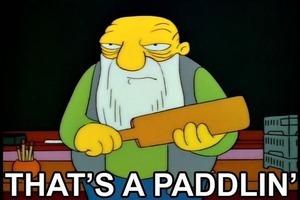How heavy handed are you guys with conflict? Just getting into a firefight dings you slightly? Or do you generally save conflict for bigger moments?
Being WEG players of old, our group tends to hand out Conflict for the big things and let the little stuff slide. For example, my Princess with The Force tends to be very hot blooded. She kneecapped a guy for mentally torturing her sister, threatening to throw her out an air lock and basically play good ol' boy games with her. So she shot him point blank in the knee with her heavy blaster and then just walked away, leaving him in the dark alley (she got 7 or 8 for that).
Or, last night - a Hutt who had been messing with her family (sadistically torturing some captives and the like) - she went after him during the climactic firefight, all pretty fair and square. It was the gratuitous grenade stuffed in the mouth of the Hutt corpse after the fight was over that dinged her for 8 conflict.
However, despite all that, she generally goes up - I somehow have this amazing knack for rolling high when I'm wracking up the conflict. So yes, even doing all that, she's still a lightside paragon.
So, are we doing it wrong? Should it be "Well, you shot a stormtrooper in that firefight. Here, have one conflict. Oh, you shot another stormtrooper - here, earn one more. . . ." or is this just an odd circumstance of rolling well?
